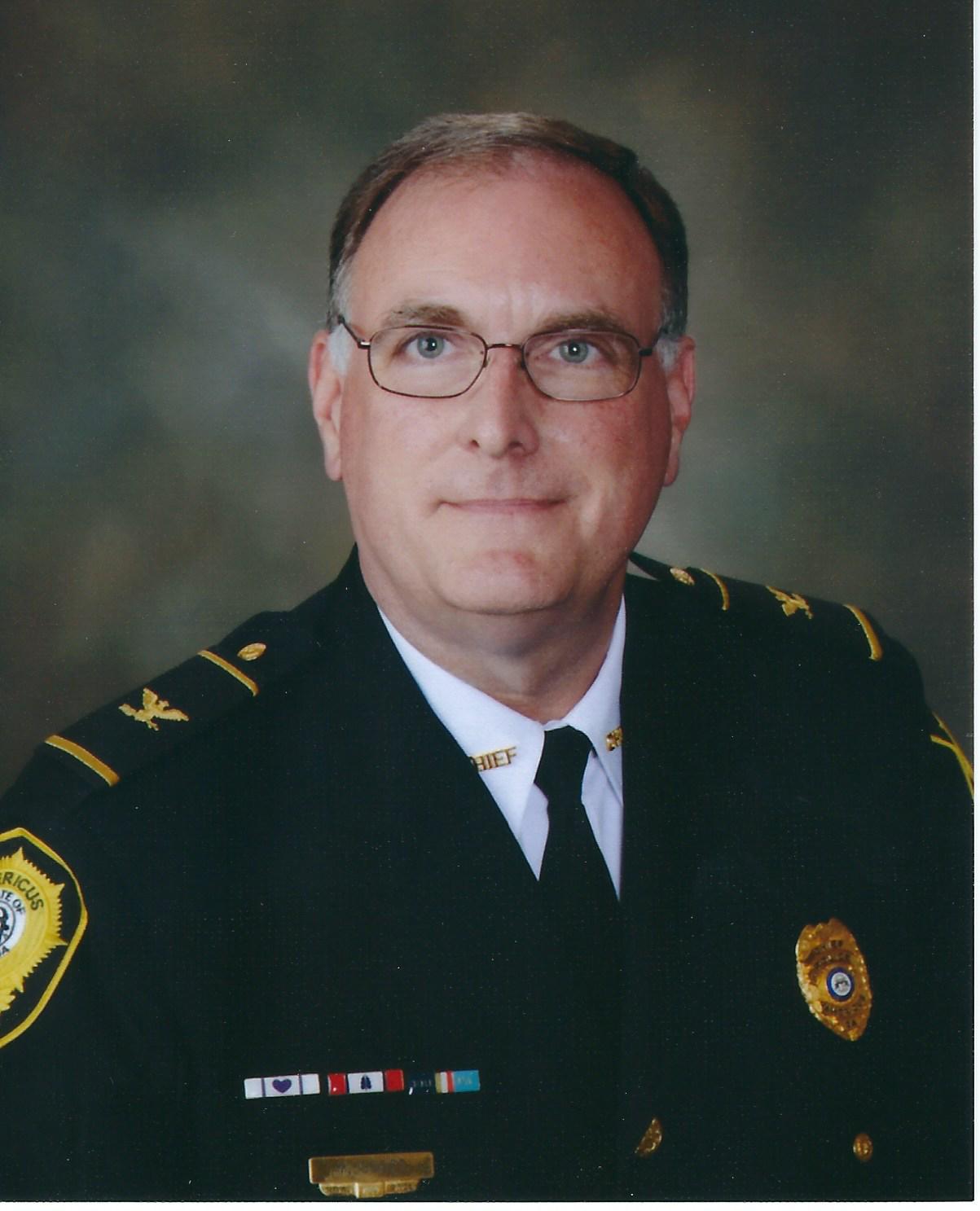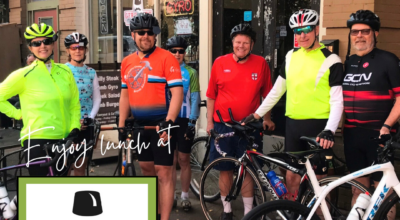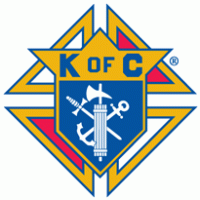People in your neighborhood: A Q & A with APD Police Chief, Mark Scott
Published 1:23 pm Thursday, June 25, 2020
|
Getting your Trinity Audio player ready...
|
BY: Tracy K. Hall – ATR
Remember your younger days when Bob on Sesame Street would put to song a very important question? The lyrics started out:
Oh, who are the people in your neighborhood?
In your neighborhood?
In your neighborhood?
Say, who are the people in your neighborhood?
The people that you meet each day.
Bob, especially loved to introduce you to the police officer. He would probably tell you they are here to keep you safe and serve your needs. Bob would tell you they are indeed good at their job and he would remind you to look for them, because they are in your neighborhood everyday.
It is easy to forget, these police who are in our neighborhood everyday are not only working among us, they are in fact living among us as our neighbors. They go to work everyday for you, but they do so because they are not only law enforcement officers (LEO), but also because they are our friends and want for our little village all the good stuff which makes us exhale and say, “home sweet home” when we pass the city limit sign. Bob would encourage you to make a point to get to know the police officer.
We all like Sesame Street. We all like Bob. But I love our police. One of the best gifts your local newspaper can give you as your neighbor is to introduce you to one of our favorite neighbors. We would like for you to get to know Chief Mark Scott of the Americus Police Department (APD). Americus Times-Recorder asked our chief to introduce himself and his staff to us through a series of questions. His answers are important to knowing the type of neighbors you have in the APD. So, our fellow neighbor, meet Chief Scott.
- What makes a good police chief?
Community involvement. We can’t expect the community to support their police, if the police don’t actively support the community. The chief should be the contact person for the department and needs to invest time and energy in getting to know the community and working together with members of the community to address problems.
- As chief, what about your staff makes you most proud?
Their commitment and dedication to this community and to our profession. All our officers are invested in this community and care very much about the people they serve. It’s not an easy time to be a police officer and those who continue to do this very difficult job, do so because they want to make a difference.
- What do you look for in hiring a cop?
We are looking for highly motivated individuals who understand what the job of a police officer entails and want to make a difference in the community. We try to recruit applicants from the local area, but are open to applicants from out of town and out of state if they are willing to invest in this area and establish community ties here. We focus on communication skills during the interview process and seek to hire those individuals with a strong customer service background and an ability to communicate and mediate disputes between others. A good applicant is even tempered and calm, but must be able to take control of a situation with authority and be physically able to take physical control of a violent criminal.
- As chief, what about Sumter County makes you most proud?
Our diversity and our willingness to work together toward common goals. There are a lot of positive initiatives in Americus and Sumter County that have members of different racial and ethnic groups working together to improve the quality of life here. Like the rest of the country, we have a long way to go, but we are actively working together to address our problems and I believe we are making slow but steady progress.
- What is community policing? How important is community policing to APD? What does it look like?
Community policing is police officers and community members working together to address problems in the community. Criminal activity in a community is almost always a symptom of other more pervasive problems in that community. If our only response to criminal behavior is to arrest the criminal, we will never really solve the problem. To reduce criminal activity, we must address the underlying causes such as poverty, drug addiction, homelessness, mental health issues, the breakdown of the nuclear family, gang violence, and the list goes on. These are complex and pervasive issues that are not necessarily a “police problem”, but if police officers work with community members to address these community issues we will measurably reduce criminal activity at the same time. There is no quick fix. No single program will have a lasting effect. Community cookouts, summer camps for kids, school resource officers, and police athletic leagues are all worthwhile programs, but they are ineffective unless we are also working with the community to promote affordable housing initiatives, educational programs, hunger eradication programs, mental health programs and other long term community based efforts.
- One of the important things for many citizens was our chief being involved in our community. When you first interviewed for the chief position, were your intentions to invest in our home as you have done through community, civic and faith-based families?
One of my responsibilities as a Deputy Chief in Albany was to represent the department at various community meetings that the chief was unable to attend. I got involved with the Stop the Violence Movement and was eventually asked to serve on the Board of Directors for that group. I attended community meetings with the Albany Gang Unit and represented the department at Town Hall meetings with City Council Members. I was also tasked with attending City Council work sessions as the representative for the police department to answer questions and made presentations to civic groups on behalf of the department. Through these experiences I learned the importance of building community support by investing my time and energy into projects that were important to the community. I expressed that philosophy during the interview process here in Americus and have tried to build community relationships over the past four years here.
- Why do you make it a point to be on the radio every Friday morning?
Somebody has to try to keep Thurston straight! Seriously though, it’s an opportunity to share information with a large part of the community. Obviously, not every member of our community listens to country music, but you’d be surprised at the number of people from a wide variety of age and ethnic backgrounds who tell me that they hear me on the radio on Friday mornings.
- When a George Floyd incident happens, what is it like to be a LEO? Does it make you cringe as it makes most of us cringe?
Incidents like what happened in Minneapolis literally make me nauseous. There are over 800,000 law enforcement officers in the United States according to the Department of Justice. The vast majority of us go to work every day and do the best we can to protect our communities and bring honor to the badge that we wear. When I turn on the TV and see a police officer doing something so utterly egregious as what we saw in Minneapolis it makes me furious. The officer responsible has tarnished not only his own badge, but all 800,000 of them.
- No matter the race, do you feel that all families should have “the talk” (a conversation regarding conduct when interfacing with law enforcement officers) with their children? Or do you think leading by example is just as effective?
I strongly believe that all parents should talk to their kids about the issues that are important to them. At the very least, parents should talk to their teenage kids about drug and alcohol use, particularly about the long-term consequences should they choose to operate a vehicle under the influence of drugs or alcohol. Tell your kids what to do if they are stopped by a police officer. Tell them to cooperate with the officer, even if they feel like the officer is in error. Almost all departments have a complaint process that they can use to address wrongful actions by an officer. Speaking from personal experience, all three of my kids have had encounters with police officers, some positive and some negative. They have all three been stopped for traffic violations. A couple of them multiple times. My advice to them has always been to be polite, keep their hands on the steering wheel, and if they need to get something out of a pocket, purse, or the glove box, tell the officer before reaching for the item.
Our officers and deputies from Sumter SO (Sheriff’s Office) are very active in all our local schools through the School Resource Officer Program, DARE and GREAT Programs. They make sure that they talk to our teenage students about these topics and answer their questions, but it is important for parents to reinforce the message. We are always available to meet with church youth groups or other youth clubs and organizations to talk to them about police/citizen encounters and answer their questions.
- We are hearing ideas floating around about “defunding the police.” In some of those conversations the idea is to take monies from law enforcement agencies and funnel them towards greater social/ community services that hopefully will address crime before it starts. We ask a lot of our LEO—we ask them to be teachers, preachers, social workers, crisis management facilitators, exemplary neighbors and sometimes a mom and dad. Would you like assistance in these areas? Would taking some of your operating budget help you or further stress a law enforcement agency?
Our budget is extremely lean. I know, that’s what I’m supposed to say, but it’s true. The city’s budget is open to the public and available for review on the city’s web site. During the annual budget preparation process, there are a series of public hearings where citizens are invited to come and ask questions about the budget. With that said, one of the greatest needs in our community and in communities across the state is increased funding for mental health services. Our officers receive training in dealing with citizens who are experiencing mental health crises, but we are not mental health professionals. The mental health and social service workers in our community are overworked and underfunded. They are doing the best that they can with overwhelming case loads. I would love to see increased funding for community social services so that we would be able to shift some of the burden of responding to mental health and family relationship crises off of police officers and on to professionals who are better qualified to give the long term counseling and care that are needed.
- How relevant are police reform ideas to our APD? Are most of the reforms being discussed already being implemented or will the way you operate change if they are implemented?
We have already implemented or have been working to implement most of the reforms being discussed at the national level, whether proposed in the president’s recent executive order or proposed legislation from the house and senate.
- We are already State Certified and Nationally Accredited
- Our SOP already classifies choke holds and neck restraints as deadly force and prohibits their use unless the situation calls for deadly force.
- We already participate in the FBI’s Use of Force Database as it currently exists and will continue to participate in any new databases.
- One of our department goals for the past four years has been to get every member of the department trained in Mental Health First Aid and Crisis Intervention. We have made progress and will continue to push this training.
- We currently report any demotions, suspensions, terminations or resignations resulting from disciplinary issues to POST and will continue to do so.
- We publish a summary of all complaints made against employees and the outcome of the complaint investigation in our annual report to the community.
- We currently provide copies of all Domestic Violence Reports to the victim advocacy center so that they can follow up and offer services.
- We currently have a formal written agreement with Middle Flint Behavioral Health to work together on mental health issues. We’ve had several recent success stories of officers assisting persons in crisis by getting them help from Mental Health Providers. We are open to partner with any organization that is seeking to meet the needs of our mentally ill and homeless population.
- Are you accredited? By whom? What does that mean?
We are state certified through the Georgia Law Enforcement Certification Program (GLECP) and nationally accredited through the Commission on Accreditation for Law Enforcement Agencies (CALEA). These programs require us to meet or exceed over 400 specific standards for the professional operation of a law enforcement agency. The accreditation and then re-accreditation process ensure that we continue to stay current on new best practices for law enforcement and that we maintain compliance with all existing standards. The process also gives us input and review from assessors outside of the department who give us an unbiased and impartial assessment of how we are doing.
- A lot of front-line workers witness atrocities many others do not. How do you address the vicarious traumatization that comes from having not only witnessed these things but having to actively participate in the management of these traumas?
The State of Georgia has a very strong peer counseling program that is administered through a cooperative effort of the Georgia State Patrol and Georgia Bureau of Investigation. Peer counselors are available to meet with any officer in need of their services at any time, free of charge. We have a chaplaincy program at the department. Volunteer chaplains from the community come and meet with the officers during shift change and are available for counseling as needed. We also have an Employee Assistance Program through the city that provides counseling and mental health services to employees. These services are available to employees on request and can also be mandated for employees who need assistance but are unwilling to seek help on their own.
- What does training look like for an APD officer?
The State of Georgia requires all law enforcement officers to receive a minimum of 408 hours of approved police academy training prior to being certified. The majority of the new officers hired here in Americus attend the academy program at South Georgia Technical College, which is a 700 hour program. Once certified, all Georgia officers must complete a minimum of 20 hours of in-service training each year in order to maintain their certification. This annual in-service requirement must include training in Use of Force, Firearms Qualification, De-escalation Techniques, Taser Certification (if carried), and Community Policing. In addition, officers who obtained their certification after 2012 must complete a recertification course every four years in order to maintain their certification.
The Americus Police Department has a dedicated training officer whose primary duty is to schedule and conduct in-service training for the department, ensuring that all minimum state requirements are met, and to coordinate specialized training from outside sources. POST records show that officers of the Americus Police Department completed a total of 3,830 hours of training in 2019.
- What can our little village do for APD?
Continue to pray for and support our local officers.
Kind of neighbors you want in our village aren’t they? We have been given men and women of excellence who are tasked to grow the good stuff in our neighborhoods. Sometimes growing can be tough, but the goal of making our home “sweet” is a worthy one. We often hear our officers referred to as heroes. We totally endorse such a lable. However some may wonder if in doing so we forget they are people, just like us, who have chosen to make life around them a little bit better a day at a time. Some may wonder what it is like to live behind the badge. It must feel heavy at times. We do know it represents the best of our community. There are people who celebrate our joys with us, there are people who show up when pain overwhelms us. There are some, that no matter if there is joy or grief, just simply show up because they know they have something good to offer. We call those people neighbors. We call those people friends. We call those people police officers.






